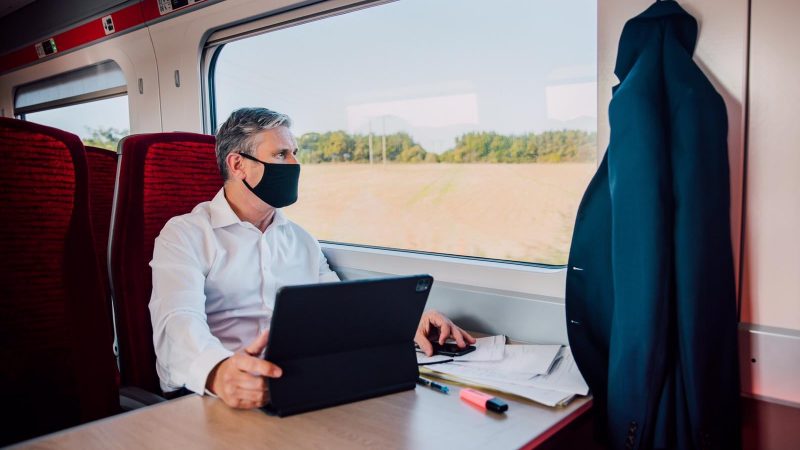
From Gogglebox to left-wing Twitter, Keir Starmer has faced much criticism in recent weeks as some believe the Labour leader should be calling for more concrete policy proposals. We know that Starmer wants to avoid setting out a wholesale political programme during a global crisis and so far from an election, but there is one area where he could be more vocal: devolution.
In a recent interview with HuffPost UK, Starmer discussed giving much more power to local authorities. Most of the ideas were focused on coronavirus: giving mayors the power to decide on local lockdowns, overhauling test and trace to put it in the hands of local public health teams, and so on. Behind those policies, there were the makings of a wider vision for Starmer’s Labour around empowering the UK’s regions and communities.
Radical federalism and wider devolution have already quietly become hallmarks of Starmer’s tenure as leader. He promised wider-ranging powers for Scotland, Wales and Northern Ireland in an article for the Daily Record in April. During his leadership campaign, he called for “a new constitutional settlement… built on the principle of federalism”. The Labour leader has not yet translated exactly these ideas could mean to normal voters. Devolution is all well and good as a concept, but practically it can mean anything from new regional parliaments and elections to more powers for councils. From giving regions financial independence to offering better bus networks, as Lisa Nandy is prone to suggesting.
A new report from the Local Government Information Unit (LGIU) offers some practical suggestions. Published today, Power Down to Level Up: Resilient Place-Shaping for a Post-Covid Age highlights a longstanding “crisis in government” in the UK, which is already one of the most centralised countries in the world. Despite the restrictions on regional power, the report argues that devolved administrations have been remarkably successful at “place-shaping”, i.e. giving a positive sense of local identity to the community. It concludes with a set of concrete recommendations for the government to help “promote empowered and resilient places throughout England”.
One of the report’s proposals is totally rethinking the fiscal powers of local authorities by allowing them to have total control over local taxes. It also calls for councils to be given total control over programmes such as Kick Start, which offers work or training to young people, so they can be tailored to the economic needs of the local area. Another suggestion is using a sense of local identity to encourage the mass mobilisation of people to support their communities. At its core is the idea that national government involvement in local communities need to be heavily cut back.
These proposals should give Starmer a number of tangible steps to consider, particularly given the actions of the current administration. Under the advice of Dominic Cummings, Downing Street has increasingly centralised government operations in Whitehall. But this approach is riddled with problems – just take the government’s increasing obsession with algorithms. The infamous exams algorithm ignored the damage it was doing to the life chances of individual students in favour optimising national grade averages. Meanwhile, flaws in the formula that the government is using to decide regional housing targets have caused it to disproportionately prioritise housebuilding in London and the South East, and to cut targets in northern towns and cities.
The Tories promised to address regional inequality with a “levelling up” agenda, yet government policies under Boris Johnson so far have consistently seen parts of the country – particularly the North of England – sacrificed for the sake of the whole. Presenting a concrete alternative to that, something that stops communities from being ‘left behind’ and offers a positive vision for the country, could be both the best way for Britain to recover after the pandemic and the key to Labour’s central mission of rebuilding trust with voters.




More from LabourList
Turning the page? Labour’s recovery in the polls show a path to 2029 victory
Restoration announce recommendations for NEC candidates
‘Factionalism at the top is weakening Labour – and handing a gift to Reform’